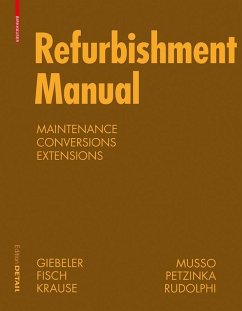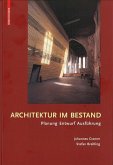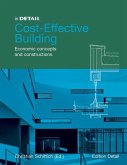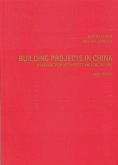Planning tasks involving existing structures are currently among the most common types of contract, and almost every structure makes different demands and raises individual problems. Reflecting this state of affairs, there are a dizzying number of publications on the market, most of which are quite specialized. The Refurbishment Manual cuts through this jungle of publications. It defines terms and concepts, combines the narrowly focused perspectives of the specialists, and offers concrete approaches to this wide-ranging topic.
The Refurbishment Manual closes the gap between basic constructional literature and one-sided, highly specialized technical literature. It constitutes a practical planning aid on the subject of refurbishment, providing a basic introduction to the relevant aspects of building physics, fire protection, sustainability and energy, hazardous materials, construction materials for interior and façade, historic preservation, and technical building equipment. It offers concrete tips on planning steps, methods of building analysis, and cost benchmarks, as well as clear constructional solutions with built projects as examples. A unique feature of the volume is the specially developed timeline, which allows the planner to quickly grasp, categorize, and evaluate a concrete building task and thus obtain an efficient planning overview.
Planungsaufgaben im Bestand gehören derzeit zu den häufigsten Auftragsarten und nahezu jedes Bauwerk stellt andere Anforderungen und weist individuelle Probleme auf. Analog dazu gibt es auf dem Markt eine fast unüberschaubare Anzahl Publikationen in meist sehr spezialisierter Form. Der Sanierungsatlas möchte Licht in diesen Publikationsdschungel bringen: Er definiert Begrifflichkeiten, vereint die fokussierenden Betrachtungsweisen der Fachleute und vermittelt konkrete Herangehensweisen an diese weit gefächerte Thematik. Der Sanierungsatlas schließt die Lücke zwischen grundlegender Baukonstruktions- und sehr einseitig spezialisierter Fachliteratur. Das Buch stellt eine praktische Planungshilfe zum Thema Sanierung dar - und zwar in Form von relevanter Grundlagenvermittlung zu Bauphysik, Brandschutz, Nachhaltigkeits- und energetischen Aspekten, Schadstoffen, Baustoffen im Innenraum und an der Fassade, zu Aspekten der Denkmalpflege ebenso wie zur technischen Gebäudeausstattung. Er liefert konkrete Hinweise zu Planungsschritten, Methoden der Bauanalyse und Kostenkennwerten sowie anschauliche Konstruktionslösungen am Beispiel gebauter Projekte. Einzigartig ist die speziell entwickelte Zeitschiene, mit deren Hilfe eine konkrete Bauaufgabe schnell erfasst, kategorisiert und bewertet werden kann - und die dem Planer somit einen effizienten Planungsüberblick verschafft.
Dieser Download kann aus rechtlichen Gründen nur mit Rechnungsadresse in A, B, BG, CY, CZ, D, DK, EW, E, FIN, F, GR, HR, H, IRL, I, LT, L, LR, M, NL, PL, P, R, S, SLO, SK ausgeliefert werden.









